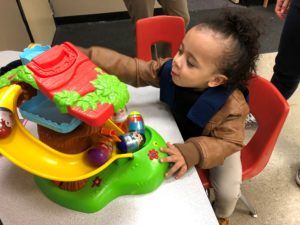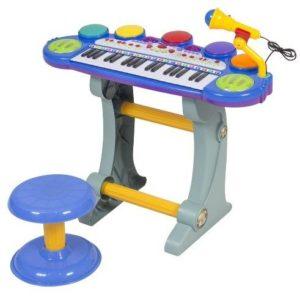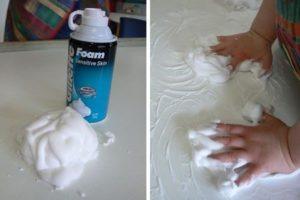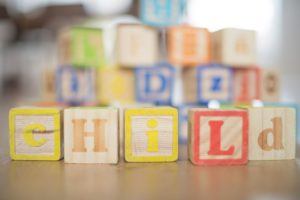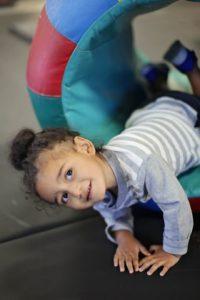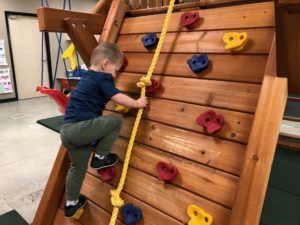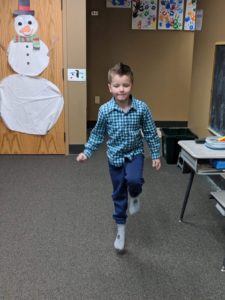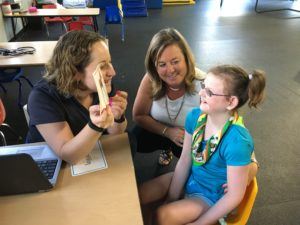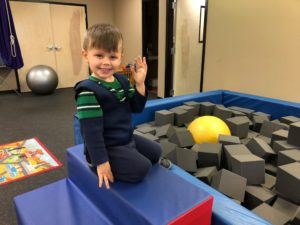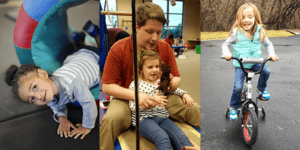Blog
There are toys that last across the ages. No age defines these toys but they are loved by the young and the old.
I bet every child had a slinky. Some were metal, some were plastic. Some were big and some were small. All were fun! Figuring out how to get a slinky to slink all the way down the stairs took higher level problem solving. Using 2 hands to make a slinky go up and down was easier but still a coordination challenge.
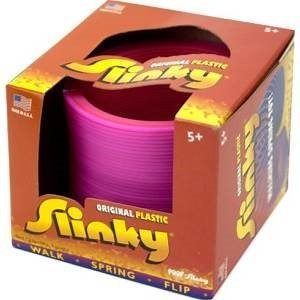
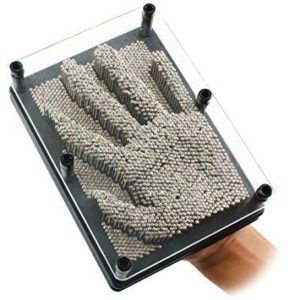
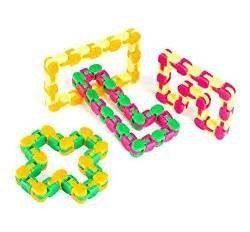
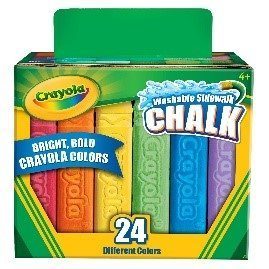
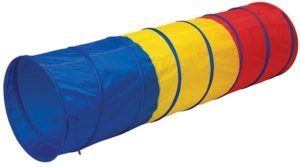
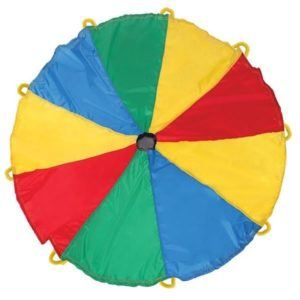
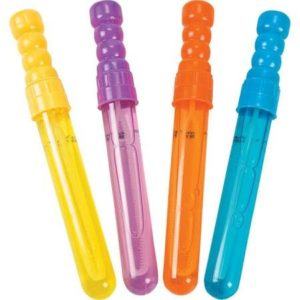
Sidewalk chalk is unlimited in your ability to be creative. You can draw stick figures – be sure to add as many body parts as you can. You can draw hopscotch – challenge your 1 foot standing skills and make more squares that require 1 foot. Draw a 4 square court and challenge your ball skills!
A parachute is a great social skill game. Use direction words – go up and now down! If you have enough people, call out a name and have that person go under the parachute. This is a great sensory experience. Close the parachute around the person then raise it back up and call another name. Challenge everyone to walk right then stop and go left. Put balls on the parachute to encourage reaction time skills – don’t let those balls pop off!
A canvas tunnel – great for crawling when young and as part of an obstacle when a bit older.
Bubbles! Who doesn’t love bubbles!? Bubbles encourage breath control in order to blow a bubble. Then you need eye hand coordination and reaction time skills in order to catch each bubble. Wait! Hold a bubble down by your child’s foot and ask then to gently pop the bubble to encourage 1 foot standing. Then hold the bubble up high to encourage tiptoes. What fun you can have with bubbles!
Fidgets are fun for everyone!
Pin art where hundreds of pins take on the shape of your hand or your foot or your face. What a great sensory experience!
Try these toys with your child and have fun together.
Be sure to know what skills and toys to have for each age level by answering this checklist based on your child’s age – checklist.abcpediatrictherapy.com.
Visit https://www.abcpediatrictherapy.com for more information about child development.
ABC wants to help you “create the best life for all children”.
Read More
Music is a great way to enhance child development. Research has proven that children who play a musical instrument do better in math. However, for the point of this blog, I am introducing music as a developmentally sensory experience.
Musical instruments teach cause and effect, fine motor coordination, breath strength and control to name a few skills.
A drum set encourages more of a gross motor arm and hand movement. A whistle or flute encourages fine motor finger movement.
Whistles are a fantastic way to gain lip strength, diaphragm strength and the ability to control how long you can push out a breath. Why are these things important? Lip strength will help a child to control thin liquids into and out of their mouth. Diaphragm strength and the ability to push out air improves a child’s ability to speak loudly or say a full sentence without needing a breath. The ability to suck a thick milkshake through a straw is influenced by lip and diaphragm strength.
The below microphone that echoes sound back encourages a child to continue to produce sounds of different length. Maybe you could take turns with your child challenging him/her to produce different sounds.
Bell chimes and tambourines are easy cause effect instruments.
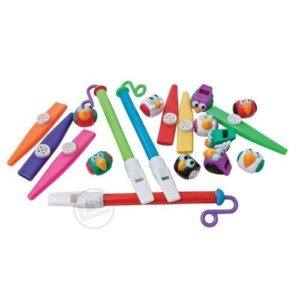
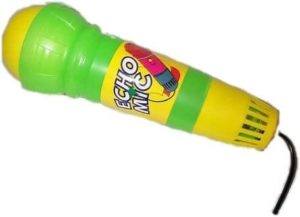
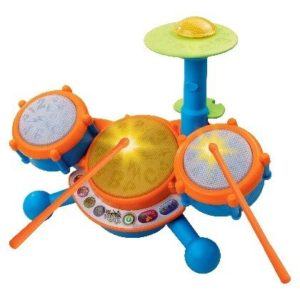
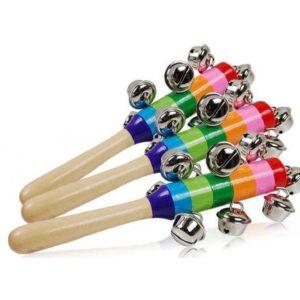
Overall, music is just fun for everyone and for all ages!
Music is something children can do alone or with friends.
If you would like more information on your child’s development, please go to checklist.abcpediatrictherapy.com and visit our website at https://www.abcpediatrictherapy.com.
At ABC, we want to help every child succeed!
Read MoreMost children love to seek out sensory feedback from their environment. For those that do not, we want to challenge them to experiment with sensory activities to the extent that sensory information will not be a barrier for them in life.
Some children have trouble focusing in school due to distracting sensory information – doors closing, chairs scraping along the floor, fluorescent lights bussing.
Or maybe it is the challenge of eating barbeque wings or corn on the cob with butter due to the inability to tolerate messy hands.
Are loud sounds so obnoxious that a parade or the circus is not a fun family event?
Consider the below sensory toys to give your child experiences such that they can work through and development a tolerance for sensory stimuli.
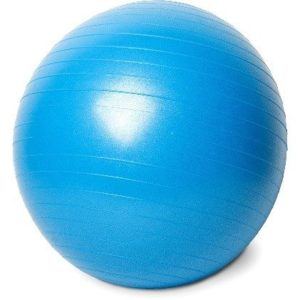
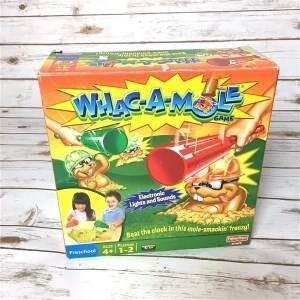
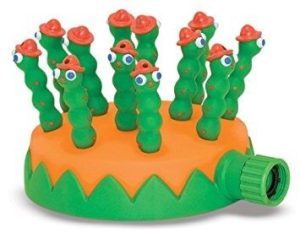
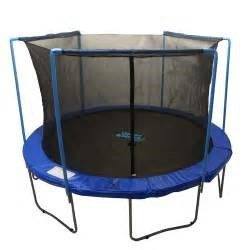
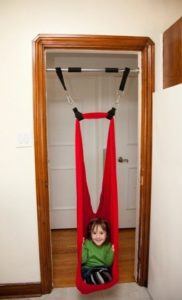
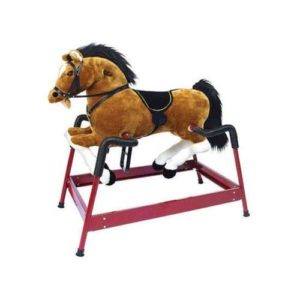
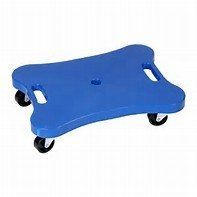
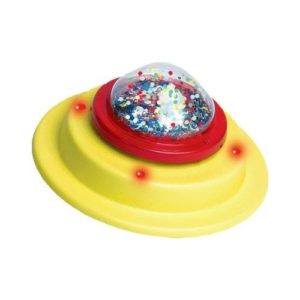
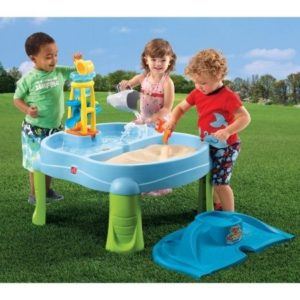

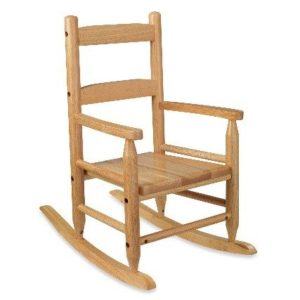
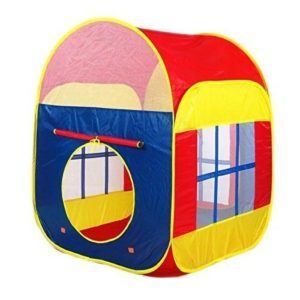
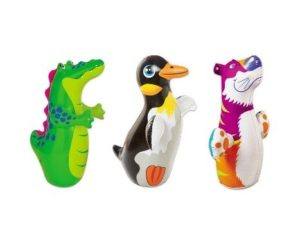
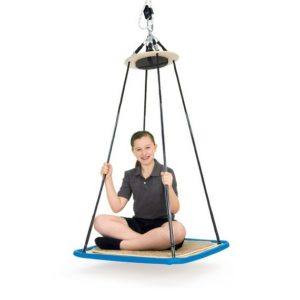

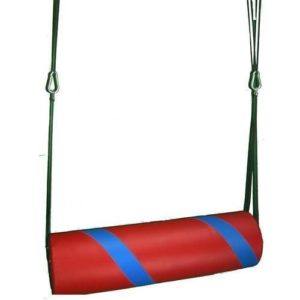
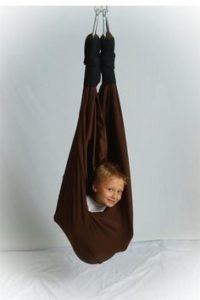
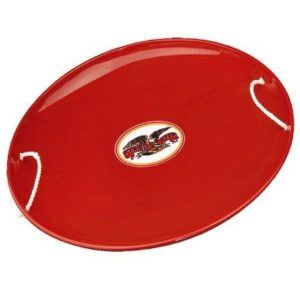

Spinning, rocking, swinging, vibration, bouncing, textures like sand, water and shaving cream, womb space like a tent or play house or body sox are all great sensory experiences for your child. Each experience is new and teaches the brain concepts needed to successfully confront the world.
Temperature, texture, sound, taste, brightness or darkness and movement are all examples of sensory experiences that your child needs to experience to grow and learn to accept these challenges as part of their environment. Having a mature sensory system will increase your child’s confidence as they will not fear any sensory stimuli.
Challenge your child (and maybe yourself) to be sure that all sensory experiences can be seen as fun or at least tolerable. This increases social opportunities for your child. For example, a child who does not like vibration may not learn to ride a bike. When his/her friends have mastered bike riding, the friends will take off on bikes leaving your child behind to come inside to play. You can work with your child to tolerate vibration and having feet off the ground as they grow in order to master later skills like bike riding.
Remember developmental skills build on each other. Keep exposing your child to new experiences so you can help mature their sensory systems.
For more information, go to our website https://www.abcpediatrictherapy.com and check out our Interactive Developmental Screening Tool at checklist.abcpediatrictherapy.com.
Let’s us know if we can help!
Read More
After about the age of 5, buying toys for children with special needs can get challenging. We want to help! As a physical therapist and the CEO of ABC, I am super passionate about children in general. I want each to succeed and toys help them to do that.
I have an 11 year old niece who has Angelman’s Syndrome. Each year my sister is so challenged to come up with gifts that will push my niece’s potential. Amazingly, my sister accomplishes this daunting task each year. I hope your challenge is made easier by sharing these ideas.
Now, I want to qualify, I am THAT aunt that, as a physical therapist, I do not want my niece playing with toys too young for her age. I try to balance her developmental level with her chronological age. This can be a challenge.
Pretend Play ideas
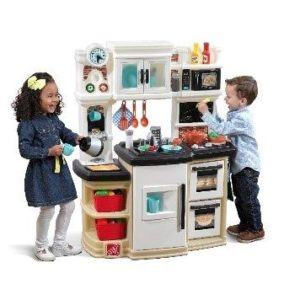
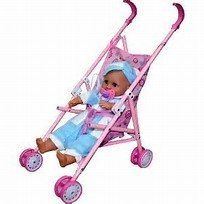
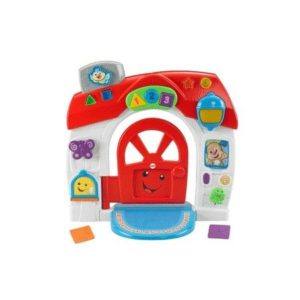
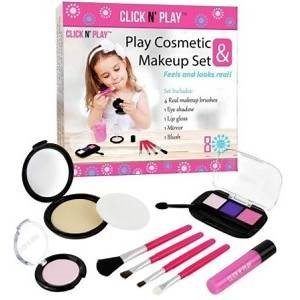
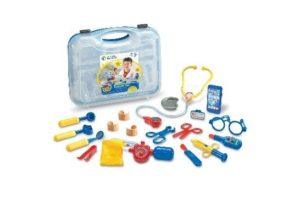
These are great play ideas for 10 months – 6 years old.
Children can crawl through, pull to stand, cruise and tiptoe.
They can use their imaginations and pretend to be a parent or cook a meal. Social interaction with a friend and sharing are also skills these toys will encourage.
Many language concepts like word development and direction words such as in, out, up and down can be challenged.
Cause and effect will also be developed playing with these toys.
Remember your child will see you or a sibling doing many activities in real life that they may or may not ever be able to do. It is fun for them to pretend at those activities. Have these toys available for your child to develop these real life skills. Encourage your child and show them how to use the toys. Take turns. Play side by side. Interact together.
I hope you found these ideas helpful! Look for our next blog as I continue to share more toys ideas!
Check out our developmental checklist at checklist.abcpediatrictherapy.com to know what to encourage at what age for your child.
Visit https://www.abcpediatrictherapy.com for more information on child development.
Read More
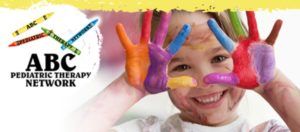
Sensory Integration is our ability to take in information from our senses and organize it so we can function in our world. Sensory Integration Skills develop throughout our growing years and involve our ability to touch, taste, smell, feel movement, hear, and have an awareness of our body. Proper development of sensory integration skills requires children to experience senses in the world around them.
Sensory Integration skills are very important to a child’s overall development, health, learning, behavior, and self-esteem. Developing sensory integration skills at an early age impacts a child’s behavior, social skills, and play skills. The human body follows a step by step process, where one area often relies on another to achieve full function. Sensory integration develops with fine and gross motor skills – they are all dependent on one another.
Each milestone that is achieved throughout the first years of life is dependent on the one that came before it. To be able to swing and climb on the playground, we must first learn to tolerate movement through space. We need to learn how to cope with busy, quiet, and changing environments in order to concentrate in school. We need to use our body senses together in order to function in our natural environments.
If your child is showing signs of challenges with their sensory Integration skills, it is important to seek out help right away before behaviors become more severe. The earlier intervention is provided, the more effective it can be. You want you and your child to experience less stress as quickly as possible.
If you have concerns about your child’s sensory processing please go to https://www.abcpediatrictherapy.com for more information.
Read MoreGross Motor Skills are the large movement skills our body develops throughout our growing years. These include rolling, sitting, crawling, walking, jumping, riding bikes, and climbing. Proper development of gross motor skills requires strength, balance, postural control, and coordination. It also requires appropriate function of our joints and muscles.
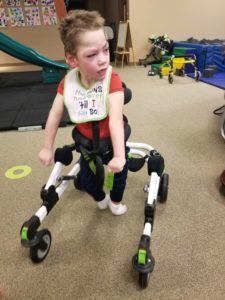
Humans were meant to be upright! Gross motor skills are very important to a child’s overall development, health, learning experiences, and self-esteem. Being able to keep up with peers on the playground encourages social and emotional development. Performing gross motor skills facilitates overall body health because it allows children to be physically active. This leads to a healthier heart, lungs, bones, and gastrointestinal system. The developmental process of gross motor skills affects other skill areas. The human body follows a step by step process, where one area often relies on another to achieve full function.
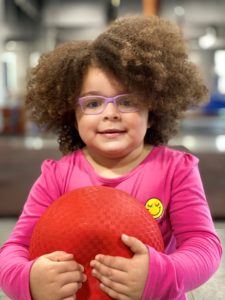
Each milestone that is achieved throughout the first years of life is dependent on the one that came before it. To get into the sitting position, we must first learn to roll. We need to learn how to stand before we learn how to walk. We need to walk before we run and jump. The body goes through a complicated movement process. If a child is not achieving a milestone within a reasonable time frame, it is important to ask questions and seek out guidance right away because the next set of skills is coming up fast. The longer you wait, the further behind the child will fall. The earlier an intervention is provided, the more effective it can be.
Go to https://www.abcpediatrictherapy.com for more information and to reach out to ABC staff to answer your questions. We are here to help!
Read MoreFine Motor Skills are the small movement skills of our hands, fingers, and wrists that develop throughout our growing years. These include writing, cutting, keyboarding, eating, holding small items, buttoning, and turning pages. Proper development of fine motor skills requires strength, postural control, and coordination. It also requires appropriate function of our eyes.
Fine motor skills are very important to a child’s overall development, health, learning experiences, and self-esteem. Developing independence with fine motor skills at an early age is crucial to school performance and self-care skills (such as dressing). The human body follows a step by step process, where one area often relies on another to achieve full function.
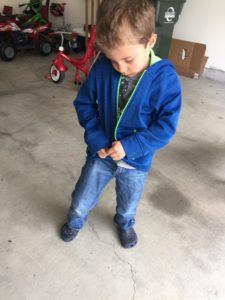
Each milestone that is achieved throughout the first years of life is dependent on the one that came before it. To be able to cut and write, we must first learn to grasp. We need to learn how to hold small objects in order to feed ourselves. We need to use our eyes and hands together before we button and zip. The body goes through a complicated movement process. If a child is not achieving a milestone within a reasonable time frame, it is important to ask questions and seek out guidance right away because the next set of skills is coming up fast. The longer you wait, the further behind the child will fall. The earlier an intervention is provided, the more effective it can be.
Go to https://www.abcpediatrictherapy.com for more information and to reach out to ABC staff to answer your questions. We are here to help!
Read MoreSpeech Skills involve our ability to communicate our wants and needs to others. In order to communicate, we need to say the correct words, with the correct sounds, as well as understand what others are saying to us. Our speech skills are very closely related to our feeding skills because the same muscles are used for both. These skills develop quickly throughout our growing years. Proper development of speech skills requires strength, coordination, postural control, attention, and cognition. It also requires appropriate function of our sensory system.
Speech skills are very important to a child’s overall development, health, learning experiences, and self-esteem. Developing independence with speech skills at an early age is crucial to school performance and social interaction. Speech skills allow a child to express their basic wants and needs. Skills necessary for eating are important for nutrition and overall health. The human body follows a step by step process, where one area often relies on another to achieve full function. 
Each milestone that is achieved throughout the first years of life is dependent on the one that came before it. To be able have a conversation, we must first learn to put two words together. We need to learn how to produce a sound before we form full sentences. We need strong muscles in our mouths to eat healthy fruits and vegetables. The body goes through a complicated movement process. If a child is not achieving a milestone within a reasonable time frame, it is important to ask questions and seek out guidance right away because the next set of skills is coming up fast. The longer you wait, the further behind the child will fall. The earlier an intervention is provided, the more effective it can be.
Go to https://www.abcpediatrictherapy.com for more information and to reach out to ABC staff to answer your questions. We are here to help!
Read MoreRaising a confident child is the goal of every parent. Confidence often trumps intelligence as being sure of yourself can take your far in life and mask what is lacking in intellect.
Instilling confidence starts at an early age.
When your child is an infant, allow multiple people to hold and talk to your baby. This encourages your child to feel safe even when they are not with you and know that you will return when you hold them again. This same premise continues as your child gets older. Be sure to allow your child to spend time away from you completely. Maybe a playdate with grandma or a babysitter will allow you to go grocery shopping or on a date with your significant other. This builds your child’s confidence. Your child will need to rely on themselves gaining confidence from within versus getting confidence from you, the parent. Consider when you are on a playdate with your child to sit a distance away from them. If you child seeks you out for help, talk the solution through with your child but send your child to handle the situation without you. Asking open ended questions like “what do you think you should do?” or “how do you think you should handle it?” will guide your child to be a confident, problem solver.
As your child experiments with walking, let him/her fall. These will not be big falls as he/she is quite small. You can “let” your child fall on carpet just allow your child to make mistakes so they have the ability to learn from them.
As your child grows, set up their space to allow for independence. Put up a hook low enough for them to hang their own coat. Shoes cubbies teach a child to put away their shoes. A hook in the bathroom allows them to hang their towel if they cannot reach the towel bar. Encourage your child to put away their toys. A step ladder at the sink allows them to help with dishes. Confidence grows in the ability to do more tasks on your own.
Dress and undressing themselves allows children to feel confident with their own bodies. Be aware of the correct ages to encourage each dressing and undressing task. As the parent you will have to buy clothes that allow for this learning and independence. For example, elastic waist pants are easier to put on than button waist pants. Shirts that pull over the head are easier to put on than shirts with multiple buttons.
A child should be able to tie their own shoes by the age of 5. So he/she should start wearing tie shoes around the age of 4 years old so they can begin to practice tying.
Biking riding is a social skill. Children that do not learn how to ride a bike may be left behind when their friends ride off on their bikes. So make sure you really work on this with your child. Know what age your child should ride a bike without pedals progressing to a tricycle to a 3 wheeled scooter to a 2 wheeler with training wheels and a 2 wheeled scooter to a bike without training wheels. Much confidence and independence is developed with bike skills.
Children often exhibit behavior due to lack of verbal skills. So encourage language in your child early. Read books and name each picture in the book. Name each item in your child’s environment. Be sure to vary your vocabulary. For example, rather than calling all shoes shoes use the more specific names like sandal, slipper, heel, flip flop, etc. Read books with real animals rather than cartoon pictures. Cartoon horses can look the same as a cartoon cow, dog or goat.
Visit our website at https://www.abcpediatrictherapy.com for developmental checklists so you know what to encourage with your child and when. Look ahead so you are sure to have the correct toys in your home at the correct time.
Good luck! I believe you can raise a confident, successful child.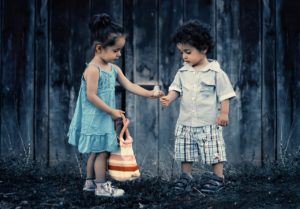
Infant Developmental Tips:
*Limit the use of positioning devices such as swings and bouncers. Too much time in these devices can lead to a mishappen head and delays in development. Place your infant on their tummy to play several times throughout the day. Avoid the use of walkers, the rock and play Sleeper and Bumbo Seat for safety and developmental reasons.
*When your child is ready to transition to baby food, let them get messy and feel the food on their face, lips, and hands.
*To aide in feeding and speech development, use an open cup, straw cup, or non-spill open cup instead of a hard spout sippie cup.
*When your infant starts walking and through the toddler years, have them wear closed toed supportive gym shoes, no sandals or flip flops.
*Talk to your baby. Read to your baby.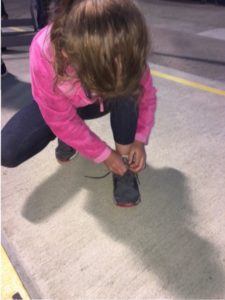
Nutrition:
*Offer your child a variety of foods with different flavors, textures, and temperatures.
*Do not allow them to graze throughout the day.
*Do not insist they clean their plate. They know when they are full.
Let Them Play and Explore
*Children learn to do new things through exposure to new things.
*Keep them active! Limit time spent watching TV or on electronic devices. Children under the age of 2 should not have any screen time. Children ages 2-5 should be limited to 30 minutes per day and children over 5 no more than 2 hours per day (per AAP).
*Let them create their own crafts. When we take over their project, we are telling them that we can do it better.
*Let them get messy!
Behavior
*Be consistent with discipline and expectations. Be sure the expectations are appropriate for the age of your child.
*Make sure your child has the language to express their wants and needs
W – Sitting
W – sitting is when a child sits on the floor with their bottom touching the ground and their feet out to the side of them while their knees are bent. Too much time spent in this position can cause your child to walk pigeon toed.
Encourage Independence
*Teach them how to zip their own coat and tie their own shoes. Tie shoes should be purchased when your child is 4-5 years old, as the skill should be mastered when they are 5.
*Place items in your house where they can reach them. For example, install hooks in your closet so they can hang their own coat.
If you have a concern regarding your child, do not wait! Children grow up fast! Share your concerns with your child’s pediatrician right away. ABC can help evaluate the concerns and teach you to teach your child! Visit us at https://www.abcpediatrictherapy.com for more tips and tricks.
Read More Skip to content
Skip to content
